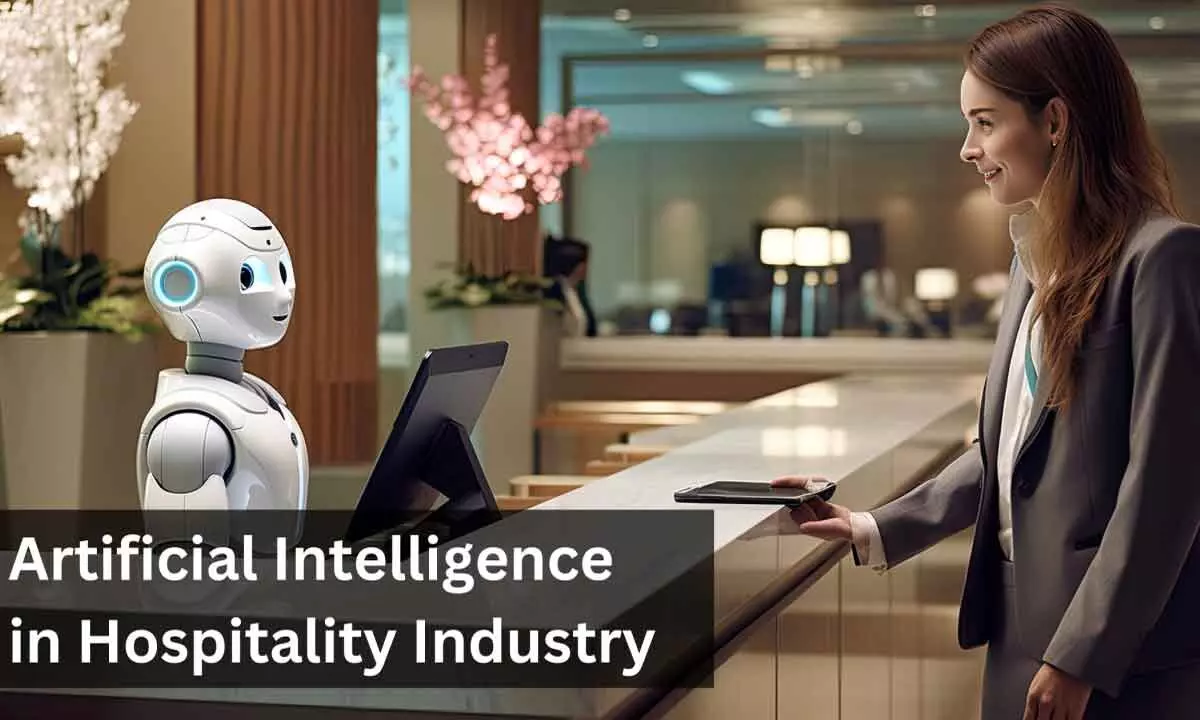AI, the new Man Friday for the hospitality industry
Facial recognition tech helps to detect unauthorized individuals and prevent potential security threats
image for illustrative purpose

The new LLM models such as ‘ChatGPT’ can assist with writing brochures, while image generating AI like ‘Mid-Journey’ can generate imagery for promotional materials. One note is to use these AI assistants with care – as always, honest descriptions and imagery are necessary to create trust in your brand. AI can help generate marketing reports and track marketing campaigns.
The use of AI in the hotel industry has transformed the way guests interact with hotels. From the moment a guest books a room, AI technologies kick into gear, analyzing data and preferences to create a personalized experience.
For example, AI-powered chatbots can assist guests in booking rooms, answering questions and providing recommendations for dining and local attractions.
Additionally, AI technology enables hotels to automate various processes, such as check-in and check-out procedures. This eliminates the need for guests to wait in long queues and expedites the overall process, resulting in a seamless and efficient experience.
Moreover, with the help of AI, hotels can optimize staff allocation, improve operational efficiency, and ultimately enhance guest satisfaction. It is also being employed to improve the security and safety standards. Facial recognition technology can be used to detect unauthorized individuals and prevent potential security threats. AI-powered surveillance systems can monitor areas in real-time, ensuring the safety of guests and staff.
It can also play a significant role in the hospitality industry's marketing efforts by enabling targeted and personalised communications and automating time-consuming data analytics tasks. AI algorithms can analyse a customer's previous interactions with a hospitality brand, such as their bookings, reviews and any other preferences, and use that data to provide personalised recommendations for future bookings.
For example, a hotel could use AI to recommend specific room types or amenities to guests based on their past behaviour. In the future this could even recommend restaurants, theatres and outings to provide a maître d’-style level of local knowledge. As well as making an appearance at the check-in desk, the chatbot available in the room can provide 24/7 concierge service, answering guests' questions and helping them with bookings and other tasks. Chatbots can collect data on customer behaviour and preferences, which can be used to improve marketing efforts and personalise future interactions. Email marketing, for instance, is a task which can be automated and enhanced by natural language AI, resulting in timely and personalised emails to your guests
As well as analysing individual data, AI can also monitor social media platforms for mentions of a hospitality brand and analyse the sentiment of those mentions. This can help hotels respond to customer complaints or issues quickly and proactively, and identify opportunities for engagement and marketing. The new LLM models such as ‘ChatGPT’ can assist with writing brochures, while image generating AI like ‘Mid-Journey’ can generate imagery for promotional materials. One note is to use these AI assistants with care – as always, honest descriptions and imagery are necessary to create trust in your brand.
Finally, AI can help generate marketing reports, tracking the marketing campaigns that had the most impact, giving valuable insight on how to construct strategy in the future.
Revenue
AI can be extremely helpful for the hospitality industry when it comes to revenue management. AI algorithms can help hotels adjust their prices in real-time based on demand and other factors, often known as dynamic pricing. By analysing data from a variety of sources, such as booking patterns, competitor prices and even weather forecasts, AI can help hotels optimize their pricing strategies and maximise revenue.
Factors that influence dynamic pricing can be extremely varied, from regular occurrences such as festivals and graduations, to one-off events such as sports finals or concerts. Even being featured in a popular film or TV programme can have a profound effect on demand in a given area. While dynamic pricing is a not a new strategy, AI can respond quickly and efficiently to many factors in real time to keep adjusting prices for optimum revenue.
While dynamic pricing responds to factors in the outside world, AI can also adjust quickly to factors inside a hospitality business to maximise revenue. It can help hotels optimise inventory by predicting demand patterns and suggesting the optimal mix of room types and amenities to offer at any given time. This can help hotels maximise occupancy and revenue while minimising waste.
This can also help hotels manage their distribution channels more efficiently by analysing data from multiple sources, including online travel agencies, direct bookings and social media platforms. This can help hotels identify the most effective channels for reaching their target audiences and optimise their distribution strategies accordingly.
AI can automate the reporting process by collecting and analysing data from multiple sources, such as booking systems, customer reviews, and social media platforms.
This can save hotels time and resources, allowing them to focus on other revenue-generating activities.

